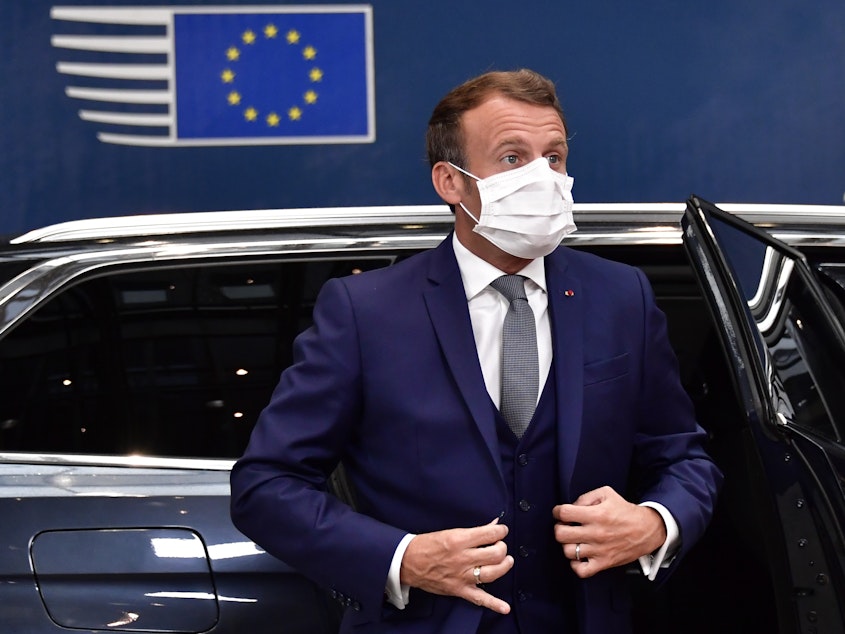EU Leaders Meet In Hopes Of Closing Divisions Over COVID-19 Relief Package

European Union leaders were going into their first face-to-face meeting in months on Friday, hoping to hammer out details of a 1.85 trillion euro ($2.1 trillion) EU budget and COVID-19 recovery plan amid a global pandemic that has touched off the worst recession in the bloc's history.
The urgency of the crisis has caused the leaders of the 27-nation grouping to abandon a series of video conference summits in favor of looking one another in the eyes — albeit from across a large room.
The EU is deeply divided between members eager for a proposed 750 billion euro ($855 billion) stimulus package to offset the economic pain of the pandemic, such as Spain and Italy, and northern European nations whose economies have been less affected.
The economies of the so-called "Frugal Four" — Netherlands, Sweden, Denmark and Austria — are expected to be spared the worst of the economic carnage. They are determined that no bailout be approved without strict conditions requiring heavily indebted members to carry out economic reforms under the watchful eye of the European Commission.
Germany, too, is expected to fare better than many of the other EU states, but Chancellor Angela Merkel nonetheless finds herself in the unusual position of aligning with Europe's poorer southern states, despite her hard-line fiscal prudence during the long-running European debt crisis.
Sponsored
Repayment of the common recovery fund would fall on the entire bloc — an approach that Germany had previously resisted but that would promote greater European integration.
The 19 economies that use the euro currency are expected to contract by 8.7% this year, with Spain, Italy, France and Croatia taking the biggest hits.
"The crisis brought about by this pandemic, with all of its economic and social consequences, is the most severe we have had to face since the Second World War," European Council President and summit host Charles Michel said late Thursday.
Even with the return of face-to-face meetings, leaders are making concessions to the ongoing pandemic, choosing to congregate in a massive meeting room designed to fit 330 people rather than the intimate space in their Europa center headquarters where they normally gather.
French President Emmanuel Macron arrived on Thursday to meet with Dutch Prime Minister Mark Rutte, whose opposition to the bailout is expected to be a major obstacle to getting agreement at the two-day meeting.
Sponsored
But Latvia's Prime Minister Arturs Karins said that the summit could go longer if it meant a deal was possible. "We want a result and we will continue working until we get that result," he said, suggesting that the meeting could go through Sunday.
The rescue package is not the only thorny issue to be ironed out – the bloc's trillion-euro seven-year budget is also pending.
Yet another point of contention could involve efforts to make EU budget contingent on member states respecting the rule of law – a move that is likely to anger states such as Hungary and Poland, which are taking heat from other EU members over their alleged drift toward authoritarianism.
Upon his arrival in Brussels, Hungarian Prime Minister Viktor Orbán said he would fight any such conditions.
"The Hungarian position is clear: Hungarians should decide about Hungarians' money," Orbán said. [Copyright 2020 NPR]



